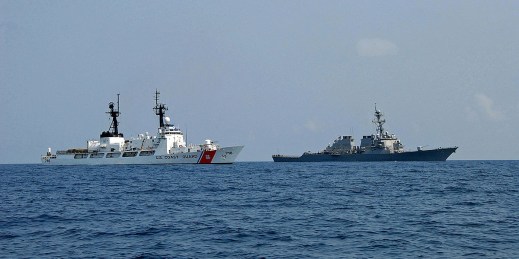
Turkish Prime Minister Recep Tayyip Erdogan is about to find out whether his strategy for quelling an increasingly effective opposition will prove successful and help him secure his place of prominence in Turkey’s future. Erdogan has brandished an eye-popping catalog of conspiracy theories in response to, first, mass popular protests and, more recently, a growing corruption scandal that has ensnared close associates, family members and, allegedly, the prime minister himself. The defense by conspiracy theory will either destroy his critics’ charges or subject Erdogan to ridicule, bringing an end to his political career. On March 30, Turkish voters will go […]



